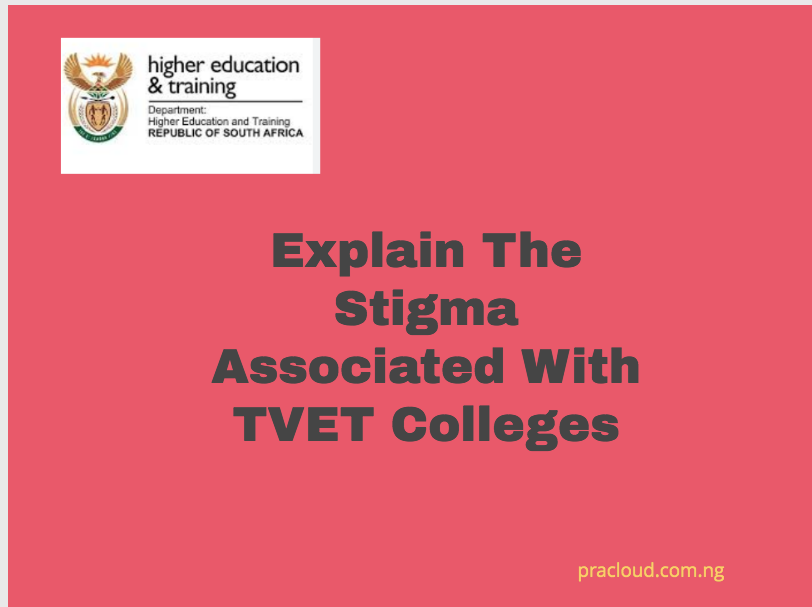Explain The Stigma Associated With TVET Colleges
Explain The Stigma Associated With TVET Colleges
Explain The Stigma Associated With TVET Colleges
In many societies, especially those that place a high value on university education, Technical and Vocational Education and Training (TVET) colleges often face a negative stigma. These institutions, which focus on equipping students with practical skills and hands-on experience, are sometimes seen as a “last resort” for those who could not make it into traditional universities. This perception can be deeply rooted in cultural attitudes that equate academic success with intelligence and social status, while viewing vocational training as a path for those who are less capable or ambitious.
As a result, many students and parents tend to overlook the value that TVET colleges provide. Instead of recognizing the important role these institutions play in addressing skills shortages, creating employment opportunities, and driving economic growth, they are often unfairly judged. The stigma can lead to a lack of confidence among TVET students, fewer applications to these programs, and even underfunding and neglect by education policymakers.
However, the reality is that TVET colleges provide practical, job-ready education that often leads to stable and well-paying careers. In a rapidly changing job market that increasingly values skills over degrees, the importance of vocational training is becoming more apparent. Still, changing the public mindset is a slow process.
Explain The Stigma Associated With TVET colleges
The results have reported that lack of student motivation and career counselling, stigma towards TVET education, lecturer’s competency and inadequacies of infrastructure resources in TVET are issues that happen in TVET education throughout the years while internet connectivity problems, learning platform, the content of curriculum and assessment, the readiness of trainers and trainees for e-learning have been discussed as challenges of TVET education during COVID-19 pandemic.
The Two Main Courses offered by TVET colleges are:
National Certificate (Vocational) qualifications, the NC (V), and
National Accredited Technical Education Diploma (NATED) programmes, also referred to as the “Report 191” programme.
Document Needed to Apply to TVET Colleges:
- A unique/valid Email address and cellphone number
- 3 certified copies of the ID of the Parent/Legal Guardian
- 3 certified copies of the ID of the Learner
- South African applicants will need an ID number. Foreign applicants will need their passport numbers.
- Copy of your school qualifications (eg, Senior Certificate)
- A certified copy of your latest results/Grade 9 or Higher;
- Proof of Residence.
Foreign students
- Certified copies of the passport
- SAQA-approved foreign qualifications
- Proof of medical insurance or cover
- Valid study permit
How to Apply To a TVET College
- Visit the college website to download the application form
- Fill all the space
- Choose a course that fits your qualification
- Provide all the important documents, such as a valid ID, certified Results, or a certificate
- Provide IDs of parents and/or guardians or a death certificate, where applicable
- International students must provide their passport ID, where applicable
This is all about South African colleges. For more information on TVET College, click here. We do hope this article on Explain The Stigma Associated With TVET Colleges was helpful. You can ask your question in the comment section.
RELATED LINKS






